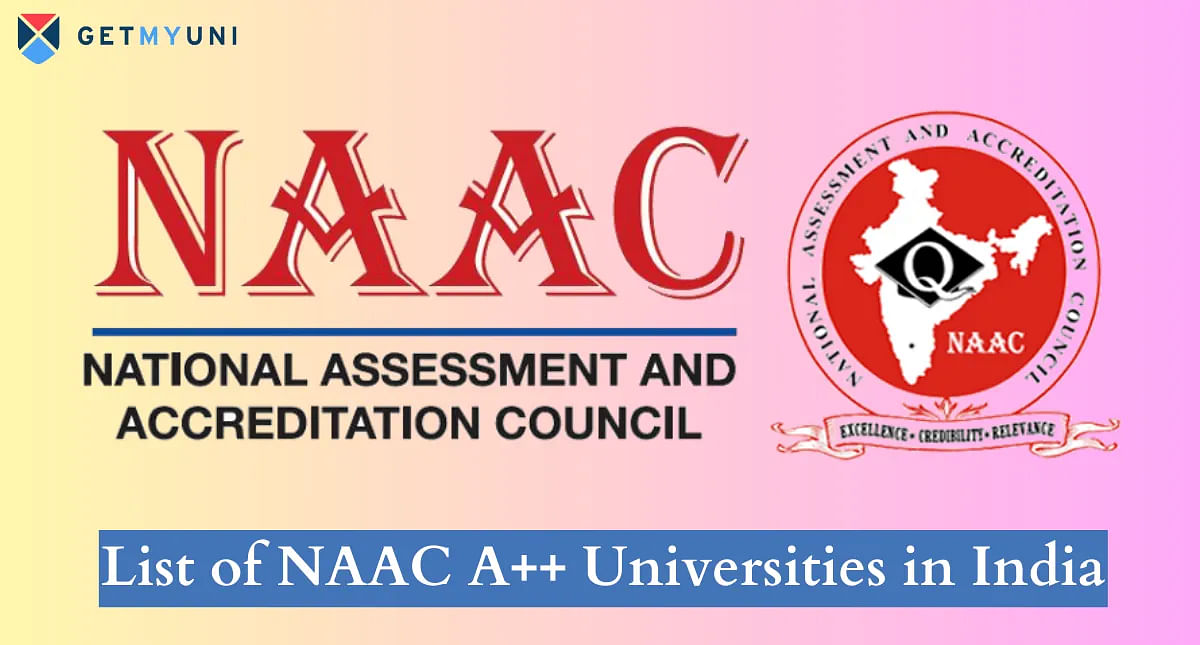An ACCA can equip students with accounting skills, while an MBA focuses on management and business. Aspirants speculating ACCA vs MBA may refer to the article below to learn about the differences in eligibility, top colleges, career options, and more.
ACCA vs MBA comparison states that ACCA is more specialized that involves accounting and financial management while MBA focuses on managerial activities and administration of a firm. In simple terms, if one likes crunching numbers and working in accounting, an ACCA is the way to go, whereas an MBA is preferable if one wants to climb the corporate ladder.
ACCA vs MBA Comparison
MBA vs ACCA are compared on various factors, but the key difference is that while an MBA may provide a wide grasp of business and management, an ACCA can give a more in-depth understanding of accounting and finance. The table below shows ACCA vs MBA comparisons on various factors.
|
Factors |
ACCA |
MBA |
| Full Form | Association of Chartered Certified Accountants | Master of Business Administration |
| Degree Type | Certification | Postgraduate |
| Course Duration | 1 to 7 years | 2 years |
| Managed by | Association of Chartered Certified Accountants. | Gov. and private B- schools. |
| Focus | Specialized learning in accountancy and finance. |
Education in management and administration field.
|
| Flexible | The course curriculum is flexible in nature. |
MBA is considered a 2-year rigid curriculum.
|
| Tuition Fees | INR 25K to 3 lakhs | INR 3 to15 lakhs |
| Average Salary | INR 3 to 6 lakhs | INR 4 to 30 lakhs |
Also Read: MBA vs M.Sc: Job, Scope, Salary, Syllabus, Top Colleges, Benefits
ACCA vs MBA Overview
The toughest dilemma is comparing ACCA vs MBA courses with the unique skills and knowledge that they offer. MBA emphasizes soft skills like communication and problem-solving, whereas ACCA emphasizes technical abilities. Given below is an overview of ACCA and MBA courses individually.
ACCA (Association of Chartered Certified Accountants)
The Association of Chartered Certified Accountants (ACCA) is a worldwide association of professional accountants and finance experts. The ACCA curriculum teaches students various business and accounting practices. ACCA opens doors to careers with accounting firms, internal auditing firms, forensic accounting firms, compliance offices, and more.
- Accounting training in the United Kingdom for individuals wishing to practice in India or overseas.
- Offered by the Association of Chartered Certified Accountants(ACCA)
- Training students to gain specialized skills in accounting. Moreover, practical skills in accounting
MBA (Master of Business Administration)
Master of Business Administration or MBA is a two-year postgraduate degree emphasizing the advanced study of business administration and management. Students learn management and concepts to get a global perspective. The course prepares students to work as HR managers, business analysts, marketing managers, and more.
- MBA is a postgraduate degree that provides core business and management skills.
- Offered by various government and private institutes
- Training students about the core skills related to business administration through case studies, reports, and group activities.
Also Read: MBA vs M.Com - Which is Better?
ACCA vs MBA Eligibility
One can compare ACCA vs MBA based on eligibility criteria, as students seeking ACCA need up to three years of professional experience to graduate while completing an MBA program can be done without job experience. However, the standard eligibility requirements for ACCA and MBA are discussed below.
ACCA Eligibility
ACCA Foundation requires almost no eligibility requirements and is open to students without any formal education. The basic eligibility criteria for ACCA certification are:
- After completing the Diploma course for ACCA Foundation, students can apply for the main ACCA certification exam.
- The minimum qualifying score for a class 12th graduate is 65% in subjects like English, Math, and Accounts.
- Students must have over 50% in all other subjects.
- The ACCA has set the minimum age requirement for applicants at 18 years.
MBA Eligibility
Master of Business Administration includes the following qualifying requirements to enroll are.
- Students must have a 50% bachelor's degree in any discipline from an accredited institution.
- Those in their last year of a bachelor's program may apply temporarily.
- For MBA admission, candidates must pass entrance tests like CAT, XAT, NMAT, etc.
Also Read: General MBA Vs Specialized MBA - Which Is Better?
ACCA vs MBA Admission Process
ACCA vs MBA is compared on various parameters as ACCA helps students learn about accounting and related fields, whereas an MBA deals with management and administrative training for the corporate world. The admission process for MBA vs ACCA is distinct, and the essential steps are outlined below.
ACCA Admission Process
Students are eligible for ACCA after completing the tenth grade. They must first complete a Diploma course before beginning the 13 ACCA subjects. Basic admission instructions for ACCA are as follows.
- ACCA admission is done by two methods, merit-based entry, and entrance exam-based entry.
- Merit-based admission requires students to complete and submit the application form with all relevant documentation on the official website. The final selection of merit-based admissions depends on the GD and PI rounds to assess the student’s potential.
- Many institutes conduct the entrance exam, and college admission depends on the test results and previous educational performance. Selected students are then contacted for the counseling and document verification round, followed by payment of fees.
MBA Admission Process
Students seeking admission to most B- schools follow the below guidelines to admit students.
- Students must first register and upload documents to complete the application process.
- The main criteria for admission is to qualify for the entrance exam with the required cut-off.
- After clearing the entrance exams, selected students must appear for the GD and PI rounds.
- After the counseling round, students may pay and secure a seat.
Also Read: MBA vs LLM: Which is Better?
ACCA vs MBA Entrance Exams
One key distinction while comparing ACCA vs MBA is the admission process and different entrance exams. The prominent entrance tests students must qualify for final ACCA and MBA admissions are.
ACCA Entrance Exams
ACCA typically does not involve entrance exams, but one should pass 13 ACCA courses/subjects to be ACCA certified.
MBA Entrance Exams
The top B - schools in India have popular entrance exams to select students, and the most common national and state-level MBA exams are outlined below.
- CAT
- MAT
- XAT
- NMAT
- CMAT
- TANCET
- MAH CET
Also Read: MBA vs EMBA - Which is Better?
ACCA vs MBA Top Colleges
ACCA vs MBA courses comparison shows that ACCA specializes in accounting and finance, whereas the MBA focuses on management and business. There is also a vast differentiation when exploring the best colleges for each. The top colleges for ACCA and MBA programs are.
Top ACCA Colleges
The top colleges offering the Association of Chartered Certified Accountants in India are:
- National Institute of Management and Research Studies
- Indian School Of Business Management And Administration Kochi
- Indian School Of Business Management And Administration Gwalior
- Christ University
- Ahmedabad University
- Times And Trends Academy
- Sharda University
- Amity University
- Symbiosis College Of Arts and Commerce
- IFMR Graduate School of Business
- American Academy Of Financial Management
- VidyaBharathi Group Of Institutions
- St. Agnes College Mangalore
- Shri Chimanbhai Patel Institute Of Professional Training
Top MBA Colleges
The top B - Schools that offer the best MBA courses in India are:
- IIM Ahmedabad
- IIM Calcutta
- SJMSOM
- IIFT Delhi
- IIM Indore
- SPJIMR
- XLRI Jamshedpur
- FMS Delhi
- NMIMS Mumbai
- SIBM Pune
- IIM Kashipur
- TAPMI
Also Read: MBA vs PGDM vs MMS - Which is Better?
ACCA vs MBA Salary
MBA vs ACCA comparison also shows that ACCA certification is ideal for students seeking work in accounting and finance, whereas the MBA suits those inclined toward the corporate sector. The top career options with ACCA vs MBA salary comparison can also be found in the tables below.
ACCA Career Scope
The list of top job roles after completing ACCA with average salaries of each are.
|
Job Role |
Average Salary |
| Accountant | INR 4.9 lakhs |
| Financial Auditor | INR 5.2 lakhs |
| Forensic Accountant | INR 8.7 lakhs |
| Chief Financial Officer | INR 4.8 lakhs |
| Accounts Officer | INR 4.6 lakhs |
| Compliance Officer | INR 6 lakhs |
MBA Career Scope
MBA graduates have diverse career options, and the list of popular job roles with average salaries is mentioned below.
|
Job Role |
Average Salary |
| Marketing Manager | INR 9 lakhs |
| HR Operations Manager | INR 8.5 lakhs |
| Employee Relations Manager | INR 8 lakhs |
| Corporate Regulators | INR 12.2 lakhs |
| Credit Managers | INR 8 lakhs |
| Human Resources Manager | INR 6 lakhs |
ACCA vs MBA Which is Better?
The decision between ACCA vs MBA should be based on the student's interests and career goals. An ACCA certification in accounting is recommended for those who find an interest in number crunching and analysis. An MBA, on the other hand, is the best option for those who thrive on analyzing data and making important business choices. So, while comparing MBA vs ACCA, which is better, is a personal and an individual choice.










